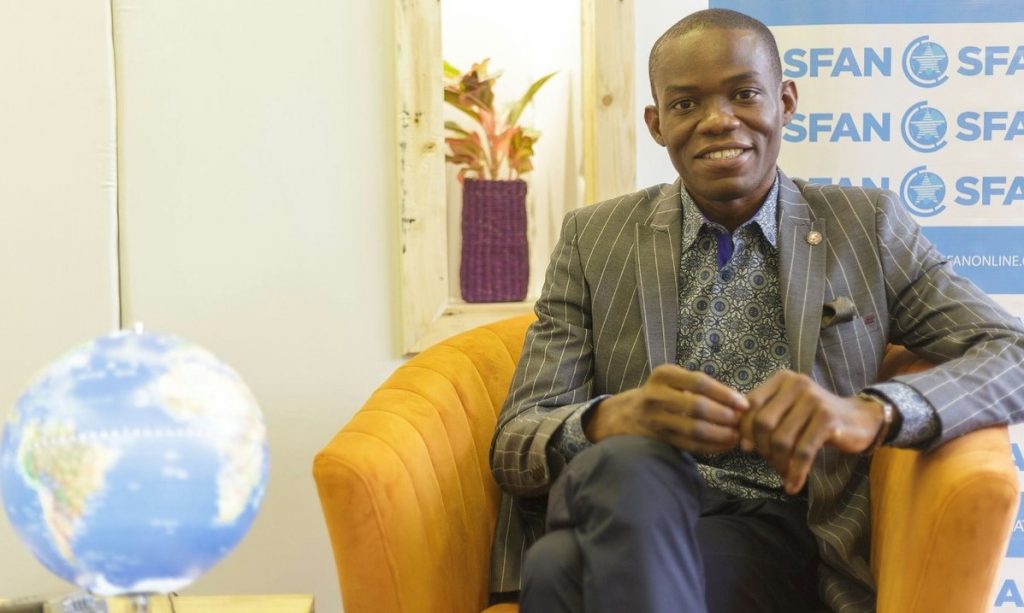They’ll hate me for calling it out. I’ll probably lose many followers when this article gets published. But none of that matters now. I’ve made up my mind to share this unspoken truth – only the truth can set us free.
The time has come to break this cycle that keeps many talented young Ghanaians under the whiplash of poverty.
Every so often, you see a long Tweet thread on how creatives are being “exploited, taken for granted or undervalued.” While some of these narratives are true, I often feel a knot in the pit of my stomach at many of the tweets.
Marketing is an art. But there is also a science to it. In the words of Benjamin P Hardy, marketing is nothing more than applied psychology. It’s about connecting with people, persuading them, and helping them.
So, with some thought and consultations, I want to share six of the strong reasons why many creatives in Ghana – and by extension, Africa – will forever be broke!
This is deep stuff, it’s brutal truth. So, what are these strong reasons, you ask? Here they are:
Number 1: They Don’t Understand Marketing

As someone rightly said: If it’s not in use, it’s not of use.
Even if you’re the best photographer in the world, if no one knows about you, you are nothing.
Marketing is an art. But there is also a science to it. In the words of Benjamin P Hardy, marketing is nothing more than applied psychology. It’s about connecting with people, persuading them, and helping them.
Marketing involves a mastery of communication, presentation, promotion, suspense, and value.
- Do you know how to get people’s attention?
- Do you know how to make people take an action?
- Do you know how to distinguish your services from the maze of options out there?
Here’s a quick example: Why did you click on this post? Why are you still reading it? If I changed the title to Ghanaian creatives may not be rich, would you have clicked on it? Probably not.
Learn how to package your work and promote yourself.
Let’s be real: Being smart is not enough guarantee for your meal ticket. You have to “show and tell” in some cases.
Some people think that when they promote themselves, they are selling out but they are wrong. If you haven’t gotten to that stage where clients are chasing you down, you need to do the legwork of getting the attention you deserve.
You are the PR girl or boy of your brand!

Afua Osei, Co-founder of She Leads Africa recently told an interesting story on her Instagram page about how she secured a paid speaking gig. The story is apt for the lessons I want to highlight here:
“Last year I was asked to come and speak at an event in another country. When I asked if there was a speaking fee, they told me that they didn’t pay speakers for the type of session they wanted me to participate in. Earlier in the year, I made a commitment to myself that if I was going to be away from my bed for more than two days then I needed to be compensated for my time. Since the event didn’t match my requirements, I respectfully declined.
This year, the same event reached out to me again and I decided to take a different approach. Instead of just assuming that they would see how great I was and offer me money, I proactively pitched myself. I told them that I could do the original ask but also host a different session that would deliver value to the attendees. I attached my media kit and the full presentation for the session that I could host so they could see that it was already ready to deliver.
I also asked one of my friends who had spoken before what she was paid to speak. She gave me a range and I was able to suggest a package to them with my terms included.
There was a bit of negotiation, but I remained focused on the value I could bring and was able to secure this paid opportunity.”
Let’s be real: Being smart is not enough guarantee for your meal ticket. You have to “show and tell” in some cases.
I’m reminded of the recent raucous on Twitter when the young entertainer, DJ Switch shared her logo design job offer last week. Some people said it was insulting – a typical example of how Ghanaian creatives are often treated.
The Tweet now deleted – Hi fans,
As I read some of the comments, I couldn’t help thinking: What if some of these fellows actually took out time to upsell themselves to the girl? What if they brokered a deal where they create the logo at a discount and she promotes their work as well, do you think she would’ve taken it? Perhaps, she would.
The most talented people are not always the ones that earn the most. The level of your earning is often determined by your marketing skills.
Number 2: They Don’t Understand Pricing

Here’s the first rule about pricing: there are no rules – it’s all based on how you value your time and your work.
Many creatives in Ghana are often underpaid because they don’t know what their efforts are worth. Also, they don’t know how to value their work in the global economy.
Enter the old African adage: if you want to go fast, go alone. If you want to go far, go together.
Here’s another hard truth: If you’re not getting enough money for your talent, it’s your fault. It’s not the fault of Ghanaian business owners or your American clients. But you can change that starting from today. You can change that by learning how to monetize your skills.
This simple pricing matrix that has worked for several people: [How much $ you want to earn] ÷ [Hours you can work] = potential rate. Do your math and research what the competitive rates are for such delivery.
Some experts recommend that in the early stages of your career, it is wise to start with low price points and grow from there. Others say you should ask for what your work is worth regardless of whether it’s high or low. At the end of the day, try to find out what works for you and your client.
Ensure you’re getting paid for your work – there are so many bills to pay these days and the last thing you need is an empty stomach.
Number 3: They Don’t Understand the Concept of Collaboration

Many creatives are not growing because they don’t understand the very concept of collaboration.
They don’t know how to work with others in the spirit of harmony and mutual respect. They prefer to seclude themselves instead of teaming up with other like-minded and forward-looking people or brands to create something greater. Some believe that collaborating with others means exploitation. Others think it’s for amateurs.
In my opinion, the cause of this thinking is traceable to our education system. In school, the success cues are in having all the answers or turning in the most exceptional project at the end of every semester. Taking exams in groups is cheating and can get you seriously penalized.
Unfortunately, these success cues from our education system do not translate into long-term success in today’s complex digital world. Collaboration has become the new form of competition.
We live in a world that’s constantly picking up speed and brimming with talents. To an extent, it would seem that technology promotes the need for isolation, but the converse perspective is true: Solving our complex societal problems need a collective effort.
Incredible things happen when creators meet at a point of mutual respect. To say the adage above another way; if you want to grow fast, grow alone. But if you want to grow far, grow together.
Enter the old African adage: if you want to go fast, go alone. If you want to go far, go together.
Collaboration is a gem. When you understand this concept and begin to use it, you realize that “1+1” is not equal to two. The result is exponential: By combining your skills and that of another person, you can grow your career without compromising on values and unique identity.
But, to make collaboration work for you, be clear about what you’re offering and the consideration you’re getting in return. And, you must establish metrics for measuring success. Also, you must make sure there’s a shared vision as well as clarity and consent on deliverables. Finally, you must learn to discuss any lapses and misunderstanding as soon as possible. Don’t allow silos of silence to corrode trust; communication is key to effective collaboration.
Incredible things happen when creators meet at a point of mutual respect. To say the adage above another way; if you want to grow fast, grow alone. But if you want to grow far, grow together.
Check out Part 2 of the article later this week!
About The Author

Tom-Chris Emewulu is the Founder and President of SFAN (Stars From All Nations), a high impact social enterprise that bridges the gap between education and work. He is an education enthusiast, entrepreneurship and career coach, a consultant at Mastercard Foundation, Seedstars Ambassador for Ghana and an aspiring venture capitalist.










